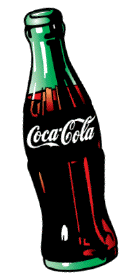Home > Archive > 2009 > June > 29
Your Berlin correspondent
Monday, June 29, 2009 by Dave Winer.
I always get a cold at about this point in a Europe trip. The jetlag must weaken me, and all the walking and sweating and temperature changes, and so forth -- I get sick. And I always do the same thing, go right through it. I'll have time to get over it when I get home. ![]()
Right now I'm spending my first full day in Berlin. So far I like it. ![]()
Two news items caught my eye this morning. One a controversy in the press over whether the President had the right to call on a Huffington reporter second in his last press conference, when it seemed as if the President had an idea what kind of question he might ask. Did anyone breach some ethical requirement. ![]()
 A much bigger issue, I haven't heard any reporter ask about, yet it is no less incestuous than the previous issue. Did the press do anything wrong in covering up the kidnap of a NY Times reporter by the Taliban? Assuming it wasn't wrong (since no one seems concerned) what is over the line? What kind of person wouldn't receive this kind of favor? And then this morning we learn, from the NY Times, that Wikipedia did the same thing, and it was a much more complex affair. And this raises all kinds of other questions. What about when information on Wikipedia, true or not, hurts people in other ways? Why shouldn't anyone be able to get whatever they want redacted? I don't think there's a bit of difference between news organziations and Wikipedia. And let's hope they're ready with an answer, or are they just making it up as they go along?
A much bigger issue, I haven't heard any reporter ask about, yet it is no less incestuous than the previous issue. Did the press do anything wrong in covering up the kidnap of a NY Times reporter by the Taliban? Assuming it wasn't wrong (since no one seems concerned) what is over the line? What kind of person wouldn't receive this kind of favor? And then this morning we learn, from the NY Times, that Wikipedia did the same thing, and it was a much more complex affair. And this raises all kinds of other questions. What about when information on Wikipedia, true or not, hurts people in other ways? Why shouldn't anyone be able to get whatever they want redacted? I don't think there's a bit of difference between news organziations and Wikipedia. And let's hope they're ready with an answer, or are they just making it up as they go along? ![]()
My feeling, Wikipedia suffers from the same centralization of authority as Twitter. No one should have the power that Jimmy Wales has, to shut down Wikipedia as a conduit for truth. It appears from the NYT story that, at times, they had verification that the reporter had been kidnapped. At that point, they had no choice but to include it, whether it jeopardized the reporter's life or not. It's a line you can't define, there must be many situations where the presence of information on Wikipedia puts people at risk, just as information on the web puts people at risk. The difference is there is no central authority on what belongs on the web, and there is one on Wikipedia. ![]()
Same problem on Twitter. Reading Fred Wilson's interview with John Battelle, I'm horrified at how involved the management of Twitter feels in the flow of information and ideas on Twitter. If it were just the web, it wouldn't matter -- his opinion is just one person's opinion, and it can be balanced by other people's point of view. But in Twitter, some people's opinions are much more important than others' and Fred is one of those most important people. This is unacceptable. There's no other word for it. I have a feeling that when the reporters on Twitter are aware of this they won't like it either, but so far I don't think they are. ![]()
Last night, unable to sleep due to jetlag, I watched Lives of Others, a movie set in East Berlin. It was a beautiful movie about the contradictions that come up when thoughtful people are tasked with controlling the lives of other thoughtful people. This is where we're going in Wikipedia and Twitter. ![]()
Recent stories
 Dave Winer, 54, pioneered the development of weblogs, syndication (RSS), podcasting, outlining, and web content management software; former contributing editor at Wired Magazine, research fellow at Harvard Law School, entrepreneur, and investor in web media companies. A native New Yorker, he received a Master's in Computer Science from the University of Wisconsin, a Bachelor's in Mathematics from Tulane University and currently lives in Berkeley, California.
Dave Winer, 54, pioneered the development of weblogs, syndication (RSS), podcasting, outlining, and web content management software; former contributing editor at Wired Magazine, research fellow at Harvard Law School, entrepreneur, and investor in web media companies. A native New Yorker, he received a Master's in Computer Science from the University of Wisconsin, a Bachelor's in Mathematics from Tulane University and currently lives in Berkeley, California.
"The protoblogger." - NY Times.
"The father of modern-day content distribution." - PC World.
One of BusinessWeek's 25 Most Influential People on the Web.
"Helped popularize blogging, podcasting and RSS." - Time.
"The father of blogging and RSS." - BBC.
"RSS was born in 1997 out of the confluence of Dave Winer's 'Really Simple Syndication' technology, used to push out blog updates, and Netscape's 'Rich Site Summary', which allowed users to create custom Netscape home pages with regularly updated data flows." - Tim O'Reilly.
Dave Winer
© Copyright 1994-2009 Dave Winer
Last update: 6/29/2009; 9:18:19 AM Pacific. "It's even worse than it appears."